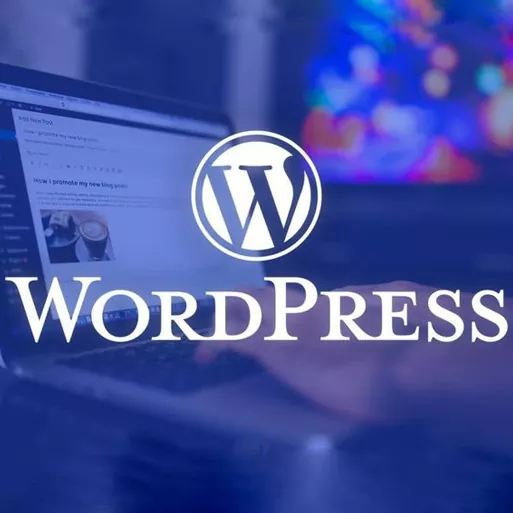The Core Reason: WordPress is Open-Source and Free Software
At its heart, the reason WordPress is free lies in its identity as open-source software. This means that the source code—the very blueprint of the software—is publicly available for anyone to view, use, modify, and distribute. This principle of freedom is legally protected by the GNU General Public License (GPL), the license under which WordPress is distributed. The GPL ensures that WordPress, and any derivative works based on it (like themes and plugins), remain free and open for all time. This ‘copyleft’ provision is the legal and philosophical backbone that prevents any single entity from owning the core software and charging for it. Instead of a product you buy, WordPress is a community-driven project you can join.
What is the GNU General Public License (GPL)?
The GPL is a foundational document in the world of free software. Created by the GNU Project, it grants users four essential freedoms:
- The freedom to run the program for any purpose.
- The freedom to study how the program works and change it to make it do what you wish.
- The freedom to redistribute copies to help others.
- The freedom to distribute copies of your modified versions to others.
By adopting this license, the founders of WordPress ensured the software would grow through community contributions, fostering a collaborative environment rather than a transactional one. This decision was pivotal in creating the vast, interconnected ecosystem we see today.
Clarifying the Two ‘WordPresses’: WordPress.org vs. WordPress.com
One of the most significant points of confusion for newcomers is the distinction between WordPress.org and WordPress.com. Understanding this difference is crucial to grasping how the ‘free’ software translates into a multi-billion dollar economy.
WordPress.org: The Self-Hosted, Free Software
When people refer to the free, open-source WordPress, they are talking about the software available for download from WordPress.org. This is the core Content Management System (CMS) that you can install on any web host of your choice. It offers complete freedom and control:
- Full Ownership: You have 100% control over your website, data, and code.
- Unlimited Customization: You can upload any theme or plugin, whether free, premium, or custom-built, to create any kind of website imaginable.
- Monetization Freedom: There are no restrictions on how you can make money from your site, be it through ads, affiliate links, e-commerce, or membership models.
The trade-off for this power is responsibility. You are in charge of purchasing a domain name, securing web hosting, and handling your own maintenance and security.
WordPress.com: The For-Profit, Hosted Service
WordPress.com, on the other hand, is a for-profit, commercial service owned and operated by Automattic, the company founded by WordPress co-creator Matt Mullenweg. It uses the core WordPress software but packages it as an all-in-one, hosted solution. This is a classic ‘freemium’ business model:
- Free Plan: You can create a basic website for free, but it comes with limitations, such as a WordPress.com subdomain (e.g., yoursite.wordpress.com), limited storage, and the inability to install plugins or custom themes.
- Paid Plans: To unlock more features like a custom domain, increased storage, e-commerce functionality, and the ability to install plugins, users must upgrade to one of several paid subscription tiers.
WordPress.com is an excellent example of a business built on top of the free WordPress software, offering convenience and ease of use in exchange for a fee and less control.
How Does the WordPress Ecosystem Generate Revenue?
While the core WordPress.org software is free, it serves as the foundation for a massive commercial ecosystem. This is where the real money is made, funding developers and companies who, in turn, often contribute back to the free project. This symbiotic relationship ensures the platform’s continuous growth and innovation.
Premium Themes and Plugins
The free WordPress software provides a robust but basic framework. To achieve specific designs and functionalities, users turn to themes and plugins. While thousands of excellent free options exist in the official WordPress repository, a thriving market has emerged for premium (paid) versions.
- Premium Themes: These offer advanced design features, more customization options, and dedicated developer support. Marketplaces like ThemeForest and independent shops like StudioPress sell themes for anywhere from $40 to over $200.
- Premium Plugins: These add powerful features that the core software lacks, such as advanced SEO tools (Yoast SEO Premium), e-commerce capabilities (WooCommerce extensions), powerful form builders (Gravity Forms), or enhanced security (Sucuri). Automattic itself generates significant revenue through its premium products, including Jetpack (for security and performance) and WooCommerce, the world’s most popular e-commerce platform, which makes money by selling premium extensions.
Managed WordPress Hosting
Every self-hosted WordPress.org site needs a place to live on the internet, which is known as web hosting. While you can install WordPress on almost any generic web host, an entire industry of ‘managed WordPress hosting’ has emerged. Companies like WP Engine, Kinsta, and SiteGround offer hosting environments specifically optimized for WordPress performance, security, and scalability. They take care of technical aspects like updates, backups, and security scanning, providing a premium service for a premium price. This specialized hosting is a multi-billion dollar industry built entirely around a free piece of software.
Professional Services: Development, Design, and Maintenance
The flexibility of WordPress has created a global workforce of freelancers and agencies who make a living by providing WordPress-related services. This ‘service economy’ includes:
- Custom Website Development: Building bespoke websites from the ground up for businesses.
- Theme and Plugin Customization: Modifying existing themes and plugins to meet specific client needs.
- Website Maintenance Plans: Offering monthly retainers to handle updates, security, and backups for clients.
- SEO and Marketing Services: Specializing in optimizing WordPress sites for search engines and user engagement.
Enterprise Solutions: WordPress VIP
Proving that WordPress is not just for bloggers, Automattic offers a high-end, enterprise-level platform called WordPress VIP. This service provides hosting, support, and consulting for some of the biggest brands in the world, including Meta, Salesforce, and Al Jazeera. Contracts for WordPress VIP can run into tens of thousands of dollars per month, demonstrating the immense scalability and commercial power of the underlying open-source platform.
The Symbiotic Relationship: How ‘Free’ Benefits Everyone
The WordPress business model is a masterclass in creating a win-win situation. The free nature of the software is not a catch; it’s a catalyst that benefits everyone involved.
- For Users: Individuals and businesses get a world-class, powerful, and infinitely flexible platform to build their online presence without any initial software costs.
- For Developers and Businesses: The massive user base (powering over 43% of the web) creates an unparalleled market to sell products (themes, plugins) and services (hosting, development).
- For the WordPress Project: The vast community of users and developers constantly contributes back to the core software by reporting bugs, suggesting features, and writing code. The commercial success of the ecosystem provides the financial incentive for companies and individuals to invest their time and resources into making the free platform even better.
So, Is a WordPress Website Really Free?
This is a key distinction to make. While the WordPress software is 100% free, creating and running a professional, public-facing website with it involves unavoidable costs.
- Domain Name: Your website’s address (e.g., asaradco.com). This typically costs around $10-$20 per year.
- Web Hosting: The server space where your website’s files are stored. This can range from $5 per month for basic shared hosting to hundreds of dollars for powerful managed hosting.
Beyond these essentials, you might also choose to invest in optional but often valuable assets like premium themes or plugins to enhance your site’s design and functionality. Therefore, while you never pay for WordPress itself, you do have to pay for the essential services required to run it online.
Conclusion: A Thriving Economy Built on Freedom
In conclusion, WordPress is free because it is a community-driven, open-source project licensed under the GPL, which ensures it will always be free to use, modify, and share. Its remarkable sustainability and growth are not despite this freedom, but because of it. The free core software acts as the stable bedrock for a vibrant and competitive commercial ecosystem where companies and individuals generate billions of dollars by selling related products and services. This brilliant model has fostered innovation, created countless careers, and democratized publishing on the web, proving that ‘free’ can be the most powerful and profitable business strategy of all.
Sources:






